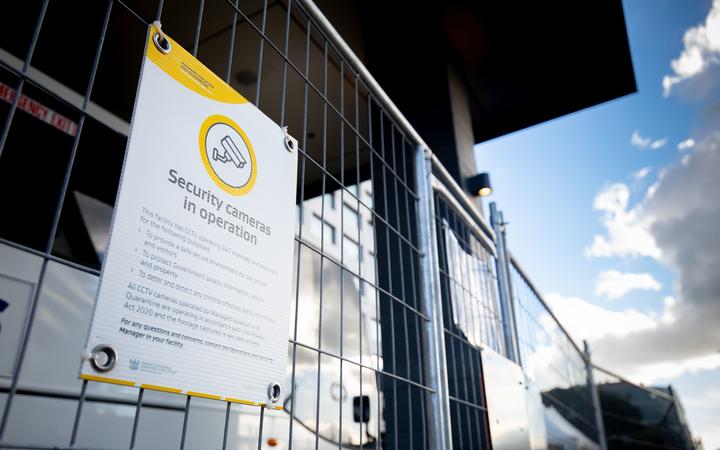
The risk of Omicron entering the community is "very high" as daily cases at the border overtake the number of new cases in the community, University of Canterbury Professor Michael Plank said.
There were 43 new cases detected at the border today, up from 23 yesterday. This is compared with 19 new community cases.
Although health officials are still waiting on genome sequencing results to confirm how many border cases are of the Omicron variant, "the likelihood is that Omicron will continue to be the most prevalent variant at our borders", the Ministry of Health said.

"The 18 days is not to be taken literally, or to be taken with a very large pinch of salt, because it's impossible to predict exactly when that would happen," he told The New Zealand Herald.
"But what it does show is that there's a very high risk at the moment.
"For the bulk of last year we were seeing two or three cases a day on average and we're now seeing cases in the 20s or 30s coming into MIQ per day, so that just increases the risk the virus will leak out into the community."
Plank said although it has not been confirmed how many border cases are of the Omicron variant, it is "probably the majority" because "it's become the dominant variant now that we have travel links with, such as Australia, the United Kingdom and the United States".
Plank supported the Government's decision from tomorrow to bring pre-departure tests for anyone travelling to New Zealand forward from 72 hours to 48 hours, aside from travellers arriving from 105 countries that are exempt.
"Hopefully that will reduce those MIQ numbers a little bit, although at the same time Omicron is going up very quickly in lots of countries so it may be that game is wiped out pretty quickly."
Plank suggested that travellers could be required to have a rapid test on the day of their departure, as the test returns results in 20 minutes.
"It won't catch every case but if they only caught half the cases that are coming to New Zealand that would be a big help," he said.
Plank praised the Government's decision to delay its three-phase plan to reopen the international border to delay an Omicron community outbreak.
"That buys a bit of time to prepare. What we really need to do is accelerate that booster programme because the data shows having that booster dose is a really important extra level of protection against Omicron."
He said the delay also allows time to roll out the vaccination programme for children aged 5 to 11 and to "build capacity" in testing and healthcare.
"We're not going to keep Omicron out forever. It will get here eventually," Plank said.
He didn't want New Zealanders to feel worried, but instead urged them to get their booster shot as soon as possible if they are eligible.
"We don't know how much time we have. So the message needs to go out very strongly now that once people are eligible for that booster dose, it's really important that you don't delay.
"Similarly for children, 5- to 11-year-olds, don't wait around for a few weeks. Go and get that dose as soon as possible."
The Ministry of Health has been approached for comment.
Of today's 19 cases in the community, six are in Auckland, five in Waikato, five in Bay of Plenty, one in Northland and two in Taranaki.
There are 38 people with Covid-19 in hospital - five at North Shore, 14 at Auckland, 15 at Middlemore and four at Tauranga.
There was a significant rise in booster vaccinations yesterday as the interval between the second dose and the booster was officially reduced from six to four months yesterday.
More than 35,000 extra booster doses were administered today compared to yesterday, a total of 41,165.












